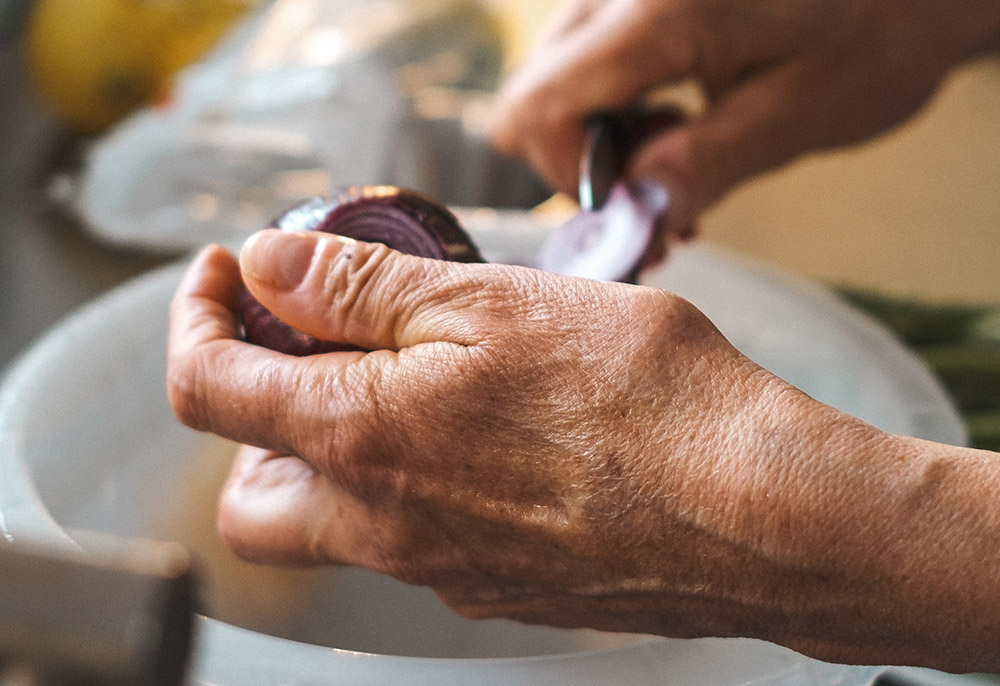
(Unsplash/Piero Istrice)
When I was 8, I owned a Barbie cookbook. Inside the plastic fuchsia pink pages were careful instructions on how to make anything from brownies to huevos rancheros. I don't remember reading or making any of the recipes, but I remember how I pored over the details and looked at the cartoon renditions imagining what they would taste like. When I would read the recipes, I sat on the counter of our small apartment's kitchen in Santiago de los Caballeros, Dominican Republic. My mother, a med student at the time and not a fan of the kitchen, would buzz from the fridge to the counter, searching for ingredients and trying to decide what we would have for dinner that night. I would read to her from Barbie's cooking directions and she would smile and settle on a classic: arroz con salchichas.
The dish, a Puerto Rican and Cuban staple, is composed of simple ingredients: canned sausages (we are devotees of salchichas Carmela), rice, sazón Goya packets for color and flavor, salt to taste and olive oil. I would peer over my book and watch my mother as she placed everything into a rice cooker and set it to "Cook." In 20 minutes, my brother and I would have a dish that became comfort food for years to come. It was in those moments that I would ask my mother if I could help. I would stir in the sazón and the salt and taste it to make sure it was just right. On some nights, these dishes were followed by late-night sweets, when my mom's sweet tooth would overpower her and she would make flan at 10 p.m.
On the days my mom was too busy with school or work, it was our neighbor, Isabel, who took us in at dinnertime. I watched her after a full day playing with my friends as she peeled the platanos and sliced the salami. On special evenings, queso frito would accompany the mangú and salami, another Caribbean classic, this one from the Dominican Republic. It was while living in the Dominican Republic that my palate expanded, especially when I finally understood that spaghetti and yucca are a perfect combination. Foods from my communities, like beans, multiple types of rice dishes, viandas, fricasseed chicken or beef stews, represent our innovation and sustenance under oppressive and patriarchal systems. In these recipes, I find out more about where I'm from than any book could try to teach me.
Advertisement
Later, when we moved to New Jersey to be with my mom's family, I finally learned my own abuela's tricks. My mother's mother didn't show her how to cook. Instead we all picked up her recipes by watching her in the kitchen. Her dishes included frijoles negroes and un caldo de pollo. My abuela never hugged or told us she loved us. Yet with her cooking, she cared for us, taught us about community and supported my brother and I whenever my mother needed the help.
These three women, in different ways, taught me how love could be measured in dashes of salt — that Caribbean women find power in cooking, especially under machista systems. They helped me understand how cooking and creating in the kitchen is a way to honor God.
My relationship to cooking
I started cooking for my family in high school. I cooked because this is what kept me grounded, because it was a necessity and because it's how I showed care to the people around me. My abuela lived with us still, but she was getting older and her tastebuds didn't as well anymore. My mom was working late-night shifts at the hospital and me and my brother needed to eat when we arrived home from school.
This responsibility fell on me as a teenager, yet being in the kitchen felt like my own intimate, solitary laboratory. In this space, I perfected classical dishes but also experimented. I started mixing sauces and adding different spices not usually included in Caribbean/Latinx recipes. I tried traditional Cuban flavors mixed in with my American upbringing. I even started baking sweets.
While my love for cooking grew, I was also aware of the ways cooking was expected of me, and of all the women in my family.
One of the first times I cooked when my aunt was over, she told me, "ya te puedes casar" — "You can get married now,” a “compliment” heard by countless women who cook all over Latin America. My relationship and love for the kitchen, however, had nothing to do with my any future marriage or relationship. As food writer Alicia Kennedy wrote for Refinery29, "To me, cooking wasn't about being domestic or homey; it was about the pursuit of something loftier, more aspirational … I want to learn how to do things differently at home, to create a home through food."
A shift happened then: I realized that the thing I loved to do was marked by centuries of patriarchy and machismo, and something I once cherished quickly became a source of desolation. I would get up later on weekends and not want to take the chicken out of the freezer. This pattern would repeat when I was home for the holidays during college and the brief intermissions between grad school when I lived at home. My mom would argue with me. She would talk to me about responsibility and duty — how it was my role to make sure my brother ate. In those years I grew resentful.
I say prayers over my arroz con pollo, asking God to nourish my family not just when they sit down to eat, but always.
Away at school in New York City and later Cambridge, though, my relationship to cooking started to heal. It once again became a haven when I could find time between my studies. I sought out the flavors that reminded me of home. Frijoles negros. Guayaba. Mangú. Tostones. I made empanadillas de pizza for my roommates because I needed them to know how I'd sit at a stand on the side of the road in Puerto Rico eating way too many. I invited my crush over for lunch because I wanted her to try authentic Cuban black beans. Cooking during those days tied me to the roots I was scared of forgetting.
For the first time, I was away from the flavors of my community, in primarily white spaces, and it was only when I had enough time to seek those foods that I realized I missed my home, my community.
Cooking and community
During the first year of the COVID-19 pandemic, I found myself back in Miami, including during the Thanksgiving holiday.
We were still in the pandemic, months into both individual and collective cycles of never-ending grief and anxiety. After months of isolation for many of us, I wanted everyone in my family to feel close and safe together. I decided I would make all the Thanksgiving side dishes. My stepdad would be in charge of the turkey.
Whenever I cook, the recipe must be followed to the letter. The tastes exact, the colors precise. This perfectionism also means that I am often stressed while cooking, and many times, the process involves crying. (My mom has now jokingly nicknamed me Nitza Villapol, a famous home cook and TV personality, called the Cuban Julia Child, who was known for her preciseness and re-creation of recipes, especially during Cuba's Special Period).
I grew resentful and I channeled it into more cooking experiments. I realized that I wanted to impress the people I was feeding. That instead of seeking out pleasure and joy for myself, I was doing it for others. I was scrambling for a way to prove myself, who I was, and where I came from. I recognized that while I loved cooking and creating for my family, I also struggled to reconcile the love I felt for creating with how stressful the process was becoming.
This year, I ground myself in the power of cooking, working through all sensory experiences of the kitchen to honor my God and all the saints.
When my family cooks, it is an extension of the matriarchal power that, despite countless generational obstacles and tragedies across various countries, continues to be passed down, from my grandmother to my mother to me. Cooking in my mother's house is ritual. It is devotion. Not only when my parents hold ceremonies for their Orishas, or when we celebrate holidays and birthdays but every day. We honor our family this way. I say prayers over my arroz con pollo, asking God to nourish my family not just when they sit down to eat, but always.
In the methodical moments that you measure, stir, pour and chop, I think about how this is so much of what faith hinges on for me: The trust and conviction one can feel when choosing to trust in the power of one’s hands, mind and heart in mixing and creating with different ingredients and styles in the diaspora. As historian of Afro-diasporic religions, Elizabeth Perez, writes: "In Caribbean and Latin American religions of African origin, the gods feel. They crave the sight of symbols and gestures; the sounds of oracles and instruments; the scent of breath and cigar smoke. They also want food."
This Thanksgiving, I find myself once more away from home, where the flavors I love are a bit harder to access. I will be celebrating with some new friends, hoping that my cooking will create a burgeoning yet tentative community bond so far away from home. I hope to share the power of cooking, how it can heal and allow us as diasporic peoples to work through the layers of intergenerational trauma.
This year, I remind myself that I don't need to rely on the extravagance or experimentation of previous years — maybe all I need is some Carmela sausages, rice, sazón (not Goya), and a little bit of salt to nourish my soul.




